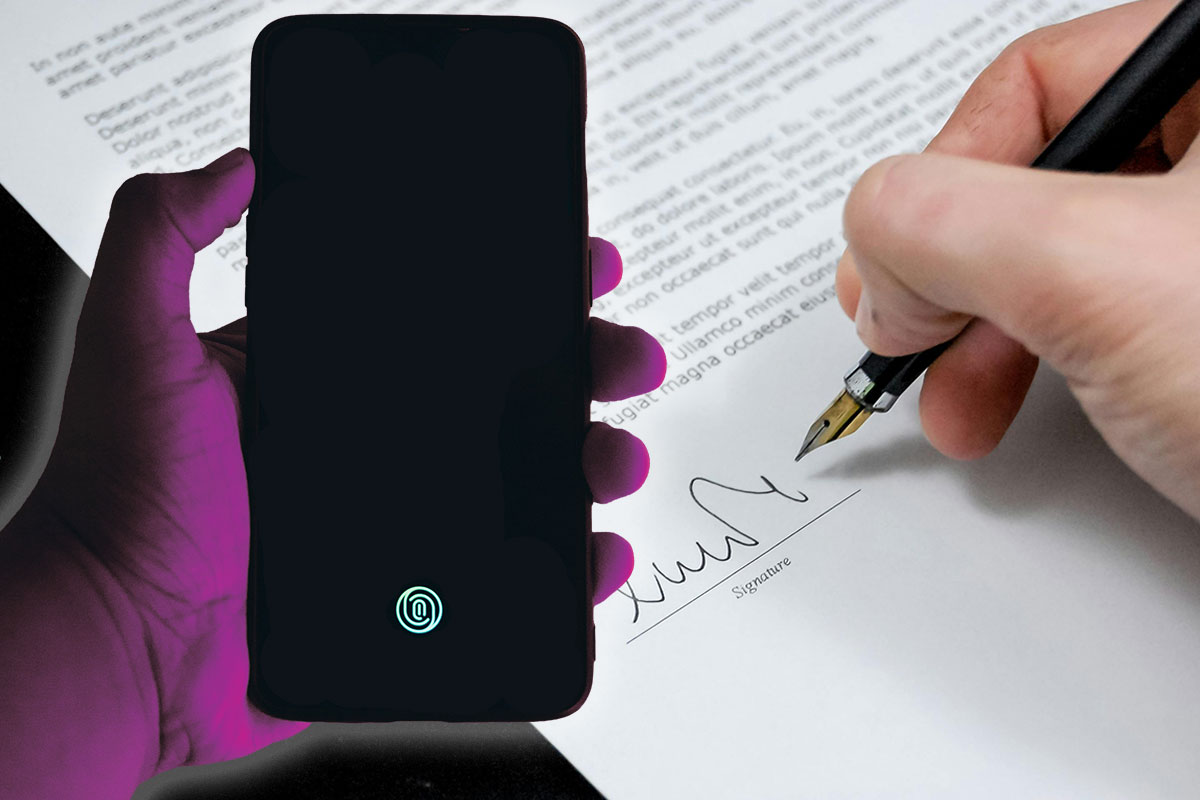The importance of signing on the dotted line
How many of us always carry a pen and paper anymore? Let’s be honest, why would you need to when you can type or dictate notes into your ever-present mobile phone. This change in the need to pick up a pen has led to a generation of children that can neither produce nor read cursive (joined up) writing. In Finland, lessons in cursive writing were removed from the curriculum in 2016. Given that most forms are now digital, and that you can even pay for things just by holding your mobile in front of the card reader, it’s hard to argue for spending too much time making children develop their flowing penmanship. With facial recognition and the ability to login even to banking apps with just your fingerprint, it’s also becoming rare that you need to sign your name. When it comes to making a Will, however, some things haven’t changed.
We recently dealt with a client who wanted to make changes to their existing Will. All was in order except for the fact that the Will had not been signed. Had the person passed away and their family tried to the use the Will, it would have been viewed by the Court as invalid. Even if no one was contesting the Will, it could not have been used and the estate would have been distributed according the rules of intestacy. Bereavement is difficult enough without having to deal with unexpected (and potentially costly) legal challenges at the same time.
Similar to Wills, a Lasting Power of Attorney (LPA) also has to be hand-signed by the donor (the person making the LPA), the solicitor and two witnesses in a relevant order. Unlike a Will, which can be stored at home, with your solicitor, or even with a friend, the signed LPA needs to be registered with the Office of the Public Guardian to become legally valid. In the past, we have dealt with clients who have had their LPA drawn up but subsequently failed to register it. Had their family needed to call upon the LPA, they would not have been able to do so. Again, your loved one losing their capacity to manage their own affairs is a challenging enough time. Being presented with numerous legal hurdles is the last thing you need to be dealing with on top of this. It’s also something that can easily be avoided.
If a Lasting Power of Attorney is not registered, financial institutions, healthcare providers, and other third parties, will not accept it as authority to act on the donor’s behalf. If the donor’s assets are paying for, or contributing towards, care costs then these costs would have to be covered by the family until the LPA had been registered and came into force. Registration can take 8 – 10 weeks, or much longer if there are any objections to the LPA.
At Pilgrim Hope Solicitors, our team are highly experienced in writing Wills and Lasting Powers of Attorney. We offer home visits where we will listen to your wishes, explain any potential challenges that your Will or LPA could face, and make sure everything meets the requirements of the Court and the Office of the Public Guardian.
To find out more, call us on 01257 422 500 8.00am to 9.00pm Monday to Friday, and 9.00am to 7.00pm on weekends.

